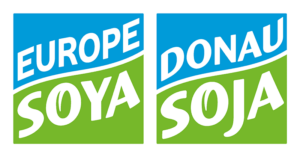The Non-GM Danube Region Standard is the first regional harmonised non-GM quality standard in Southeast Europe which is the basis of a new food and feed certification and labelling with an unique quality label „NON GMO Produced“, provided by Donau Soja and common to all markets in the region.
The label “NON GMO Produced” is developed and registered internationally by the Donau Soja Association
The Non-GM Danube Region Standard with the regional “NON GMO Produced” label, offers the possibility of a joint and transparent market of non-GMO products and enables regional trade without barriers. It also provides the industry with the opportunity to regionally promote non-GMO certified products, it adds value and thus increases competitiveness of the non-GMO food sector in Southeast Europe, while simultaneously helping consumers make an informed choice.
The national and international credibility of the Non-GM Danube Region Standards (production and inspections guidelines) is the keystone on which high confidence and security stands.

Development of Non-GMO Danube region standard
–
The Non-GM Danube Region Standard was developed in 2015 with the support of the 15 Ministries of Agriculture within the Danube region, the Donau Soja Association, the Austrian Development Agency (ADA), the German Association for International Cooperation (GIZ),
and the leading German and Austrian institutions for non-GMO certification and labelling such as the German VLOG (Association Food without Genetic Engineering) and the Austrian Platform for GMO-Free Food Products (ARGE Gentechnik-frei) as well as the Environment Agency Austria (UBA).
Non-GMO Danube Region Standard and label response to consumer demands
–
Application of the non-GMO Danube Region Standard and label
–
Label “NON GMO Produced” might be applied to:
Food products of animal origin (eggs, meat, milk, processed products, etc.)
Feed products
No genetically modified (GMO) ingredients were used in the production process
Animals were fed non-GMO feed
The benefits of non-GMO labelling:
–
Label “NON GMO Produced” might be applied to:
continue to Recognition »

